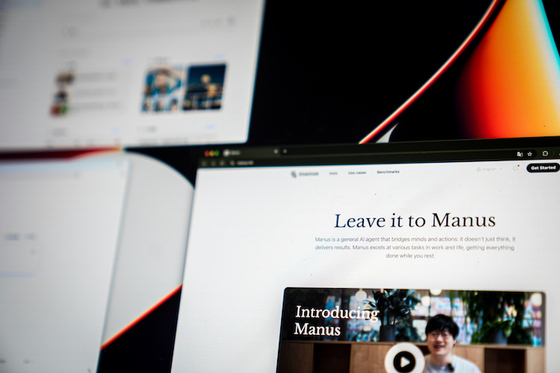The emergence of advanced AI agents has recently transformed the global artificial intelligence landscape. Starting with DeepSeek, a Chinese foundational model notable for its efficiency, the AI community is now witnessing a new wave of innovation with companies like Butterfly Effect Pte. Ltd. Their flagship product, Manus, is gaining recognition as the first truly autonomous AI agent capable of processing complex, multi-step tasks autonomously, rather than merely assisting or automating workflows. A widely shared demo showcased Manus performing tasks such as autonomously reading and ranking job applications, generating structured outputs, and providing detailed explanations of its decision-making criteria. The ensuing buzz in China led to high demand for beta invite codes, highlighting public enthusiasm for advances in general-purpose AI agents. The company’s cofounder, Ji Yichao—an entrepreneur with a history of successful startups—demonstrates that impactful contributions in this field do not require traditional elite academic backgrounds. The rise of purpose-driven tools like Lovable, which rapidly achieved $17 million annual recurring revenue and tens of thousands of users, further signals a shift toward autonomous agents that act, reason, and collaborate in digital environments [para. 1][para. 2][para. 3][para. 4][para. 5][para. 6][para. 7][para. 8][para. 9][para. 10][para. 11][para. 12][para. 13][para. 14].
Major technology firms are now racing to define and dominate the AI agent space, each offering slightly different interpretations. Google emphasizes agents’ ability to plan, reason, and execute actions for productivity, Microsoft likens its Copilot to an AI assistant, and IBM positions agents as digital colleagues. What unites these perspectives is the trajectory toward agents that exhibit increasingly complex, “human-like” behavior—enabled by the advances in foundational AI models and longer task execution capabilities. Tools like Anthropic’s Claude 4.0 and collaborative design platforms such as Miaoduo AI 2.0 now allow uninterrupted, efficient workflows. Meanwhile, visual design and entertainment agents, like Lovart and platforms like IdeaFlow, are rapidly commercializing and drawing in global user bases. Despite the remarkable progress, challenges remain; today’s AI agents still often require human guidance and lack robust, autonomous learning and self-correction abilities. Gartner outlines three generational phases for agents: talking bots, acting agents, and—eventually—agents that learn. Experiments like Google DeepMind’s AlphaEvolve indicate steps being taken toward that future, where agents not only support but also teach and refine each other [para. 15][para. 16][para. 17][para. 18][para. 19][para. 20][para. 21][para. 22][para. 23][para. 24][para. 25][para. 26][para. 27][para. 28][para. 29][para. 30][para. 31].
Successful AI agents depend on an integrated ecosystem of foundational models and standardized protocols. Open standards like Anthropic’s Model Context Protocol (MCP) and Google’s Agent2Agent (A2A) are being adopted globally, enabling seamless data and task exchange between models and tools. Companies in China and worldwide are building marketplaces and development environments that enhance agent interoperability, though the Chinese ecosystem remains fragmented due to competing platforms. This fragmentation and the declining costs of model usage are eroding developer loyalty to any single platform. Competition has triggered aggressive price cuts by leading players like OpenAI and ByteDance, impacting the economics of AI model deployment [para. 32][para. 33][para. 34][para. 35][para. 36][para. 37][para. 38][para. 39][para. 40][para. 41][para. 42][para. 43][para. 44][para. 45][para. 46][para. 47].
Investment in AI agents is booming, driven by both international capital and Chinese tech giants. Notable fundraising rounds include Manus ($75 million at a $500 million valuation) and LibLibAI (hundreds of millions of yuan). VCs see the current moment as a rare alignment of startup innovation and investor enthusiasm, but they caution that this wave could recede sharply by 2026 or 2027, leaving only those startups with strong business models. Fragmentation and the dominance of large platforms pose existential threats to newcomers, prompting some startups to target international markets or narrow niche markets rather than compete directly with China’s internet heavyweights. Many believe that lasting value for agent startups will come from solving specific, vertical problems before expanding broadly or being acquired by tech giants, with focus and specialization seen as viable defense strategies. As the space matures, the competition to discover and back the next breakout “black horse” in the AI agent industry is intensifying [para. 48][para. 49][para. 50][para. 51][para. 52][para. 53][para. 54][para. 55][para. 56][para. 57][para. 58][para. 59][para. 60][para. 61][para. 62][para. 63][para. 64][para. 65][para. 66][para. 67][para. 68][para. 69][para. 70][para. 71][para. 72].
AI generated, for reference only

